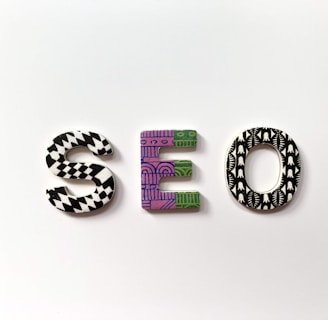What Is SEO, Who Needs It, and Why It Still Works in 2025
Search Engine Optimization — or SEO — remains one of the most powerful long-term marketing levers for businesses in 2025. If you're running a business that has a website, and you want people to find you on Google instead of your competitors, you need SEO. Period. This guide will break down what SEO is, who should be investing in it, and why it continues to be essential for traffic, leads, and revenue generation.
4/20/20253 min read


What Exactly Is SEO?
SEO (Search Engine Optimization) is the process of improving your website’s visibility on search engines like Google. The higher your site ranks in the organic search results, the more likely you are to attract high-intent, unpaid traffic.
There are three core pillars of SEO:
On-page SEO: Optimizing content, meta tags, internal linking, and keywords.
Off-page SEO: Building high-quality backlinks from authoritative websites to improve domain authority.
Technical SEO: Site speed, mobile responsiveness, URL structure, schema markup, crawlability, etc.
If you’ve ever used tools like Ahrefs, SEMRush, or Surfer SEO, you’re already dabbling in the data-driven side of SEO optimization.
Who Should Be Using SEO?
The short answer? Any business with a website.
The longer answer:
Local businesses should be investing in local SEO and Google My Business optimization to rank in map packs and local search results. A good local SEO agency can help dominate geographic queries like “dentist near me” or “SEO company in Singapore.”
E-commerce brands benefit from product-specific content and structured data for better visibility in Google Shopping and organic search. Shopify SEO and WooCommerce SEO are essential here.
Service-based businesses (lawyers, dentists, accountants) often see the highest ROI because SEO delivers leads without ongoing ad spend.
Startups and SaaS companies can use programmatic SEO to generate thousands of landing pages at scale and capture niche search intent early.
Content-based businesses (blogs, media, course creators) depend on SEO content writing and proper keyword planning to build long-term traffic moats.
If you're investing in Google Ads, SEO complements it — building organic visibility while reducing your dependence on paid clicks over time.
Why SEO Still Works (and Will Keep Working)
Google is constantly evolving — from Core Updates to AI search integrations — but the core principles of SEO haven’t changed. Here’s why it remains effective:
1. User Intent Drives Search
SEO is all about matching user search intent with relevant, trustworthy content. When done right, your site becomes the answer to what people are actively looking for.
2. Compounding Returns
Unlike paid ads that stop when your budget does, SEO content continues to generate traffic and leads month after month. It’s a long-term asset that compounds.
3. Trust and Credibility
Users inherently trust organic listings more than ads. A top Google ranking positions you as a market leader.
4. SEO Is Trackable
Using SEO analyzers, Google Search Console, and Google Analytics, you can track rankings, impressions, and click-through rates. Tools like SEMRush, SE Ranking, and Moz allow you to audit competitors and uncover opportunities.
5. Cost-Efficiency
Hiring a good SEO agency, freelance SEO specialist, or white label SEO provider often yields a lower cost per acquisition than most paid channels. Especially when targeting high-converting keywords with low competition.
How to Start (Or Scale) Your SEO in 2025
Keyword Research
Use tools like the Google Keyword Planner, Ahrefs Keyword Explorer, or Moz Keyword Tool to find terms with high search volume and commercial intent.SEO Audit
Run a full technical and content audit with tools like SiteAnalyzer, Seositecheckup, or SEMRush Site Audit.Content Strategy
Focus on publishing optimized, intent-driven content using Surfer SEO or Frase.io. Make use of LSI (Latent Semantic Indexing) keywords, FAQs, and schema.Backlink Building
Quality > Quantity. Focus on earning links from publications, directories, or niche blogs. Tools like HARO, Majestic, and Backlinko techniques can help.Local SEO Setup
Create and optimize your Google My Business profile, get local citations, and gather reviews. Great for plumbers, clinics, restaurants, and real estate agents.
Final Thoughts: Is SEO Worth It?
Yes — and it’s never too late to start. SEO gives you control over your discoverability, helps you lower customer acquisition costs, and builds real brand equity.
If you're tired of relying solely on ads, or want to complement your Google PPC campaigns with a long-term channel that drives inbound demand, SEO is your move.
Ready to Grow with SEO?
At BLOAT Media, we offer full-stack SEO services for small businesses, startups, and established brands. Whether you need a technical audit, backlink strategy, or ongoing SEO content creation — we’ve got the team and the tools to make it happen.
📥 Book a free SEO consultation — and let's find out how many leads you're leaving on the table.


